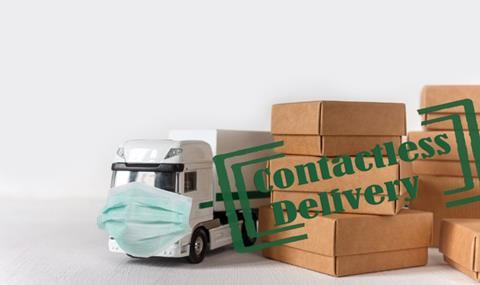
Haulage and logistics can forget a return to pre-pandemic sales unless it embraces the “low touch economy”, with investment in autonomous vehicles, localised supply chains and contactless delivery processes, according to a new report.
Strategy firm Board of Innovation (BoI) warned that the automotive industry must “adapt and pivot” and not assume a return to conventional consumer behaviour will rescue the sector.
It said a low touch economy, characterised by low touch interactions, new human behaviours and permanent industry shifts, was here to stay and offered unseen opportunities for supply chains.
In its report about how companies can recover in a post-lockdown world, the BoI urged firms to think big and accelerate the roll out of autonomous vehicles to reduce health risks.
It said other low touch economy shifts included splitting up centralised supply chains so that future disruptions can be handled and the adoption of nearshoring and forward shipping strategies as well.
Nick De Mey, BoI founder, said: “Any company operating in the transport space, from commercial fleets, car-makers and hauliers, need to prepare their business if they are to survive in the low touch economy.
“We are seeing small changes in the UK automotive landscape, such as the rise of click and collect, which prevented a complete collapse in sales in May, according to the Society of Motor Manufacturers and Traders.
“But it’s not enough.”
The report warned that even when lockdown measures are eased it was likely that people will have permanently altered their attitudes and habits and this could have “a significant and lasting impact on logistics”, particularly for parcel delivery companies.
Kim MacGillavry, UPS strategy director, said consumers wanted shipments delivered to their homes, but they did not want them dropped off at their doorstep and left unattended: “Attitudes may be changing though,” he said.
“While people could not venture out to brick-and-mortar stores to buy goods, e-commerce has made it possible to get everything they need and allowed shops to remain in business.
“All this was made possible thanks to the efforts of parcel delivery companies to adapt to the situation and to continue providing their services throughout the crisis.
“To maintain a safe social distance, contact-less delivery processes were introduced.
“This means there is no need to sign for receipt on a device and parcels are not handed over personally, but left at the door or in a safe place.”
MacGillavry added: “It is too early to tell whether these new policies will last once the crisis has subsided.
“It would be a good thing for the consumers, sellers and parcel delivery companies alike.”














